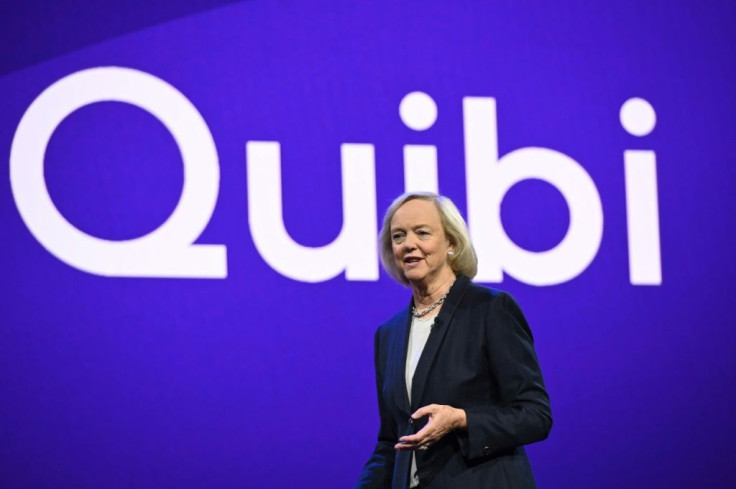Struggling Quibi Might Be Sold After Winning First Emmys
Shortly after winning its first Emmy Awards for its original programming, struggling streaming service Quibi might be going up for sale. Amid stagnant subscriber growth, the Jeffrey Katzenberg-led service is said to be exploring a sale or merger options.
The company is reviewing options for a sale of the beleaguered streamer, another round of funding, “or going public through a merger with a special-purpose acquisition company, or SPAC—essentially a blank-check company that helps fund deals," the Wall Street Journal reports. Only six months old, Quibi is set to miss subscriber goals and faces the wrath of disappointed advertisers for its cheaper, ad-driven tier.
Quibi itself declined to comment on WSJ’s report, issuing a boilerplate statement touting the platform as a successful venture and reaffirming its commitment to the future.
Quibi launched on April 6 with a beguiling gimmick based on shows with short episodes – usually 7-10 minutes each – and a focus on smartphone viewing. Despite the COVID-19 pandemic increasing the global appetite for streaming content, Quibi struggled to sell itself, with many questioning its limited form factor and criticizing its lackluster offerings.
The latter issue was alleviated somewhat as time went on. One of its best-reviewed shows, “#FreeRayshawn,” recently saw two of its stars, Laurence Fishburne and Jasmine Cephas Jones, take home acting Emmys in the short-form program categories. The platform also nabbed acting nominations for Christoph Waltz in “Most Dangerous Game” and Anna Kendrick for “Dummy.”
Quibi currently offers a $4.99-a-month ad-driven option and a $7.99 option that is ad-free. It last reported subscriber numbers in June, according to The Hollywood Reporter, boasted 4.5 million downloads but only 1.6 million subs. This is a far cry from other recently launched streamers like Disney+ (60 million), HBO Max (4.1 million), and Peacock (15 million, across paid and free tiers).

© Copyright IBTimes 2025. All rights reserved.





















